Summary
The energy transition needed to limit global warming to 1.5 degrees Celsius or less will affect all people directly or indirectly. Bringing Nordic stakeholders together by engaging private sector, government officials and knowledge institutions is vital to help accelerate a just energy transition.
A platform for Nordic stakeholders has been initiated
Initiated by The Nordic Council of Ministers’ Vision project “Climate Transition in the Nordics” (KloN) and the Nordic Working Group for Climate and Air (NKL)
Sharm el-Sheikh mitigation ambition and implementation work programme
United Nations Framework Convention on Climate Change
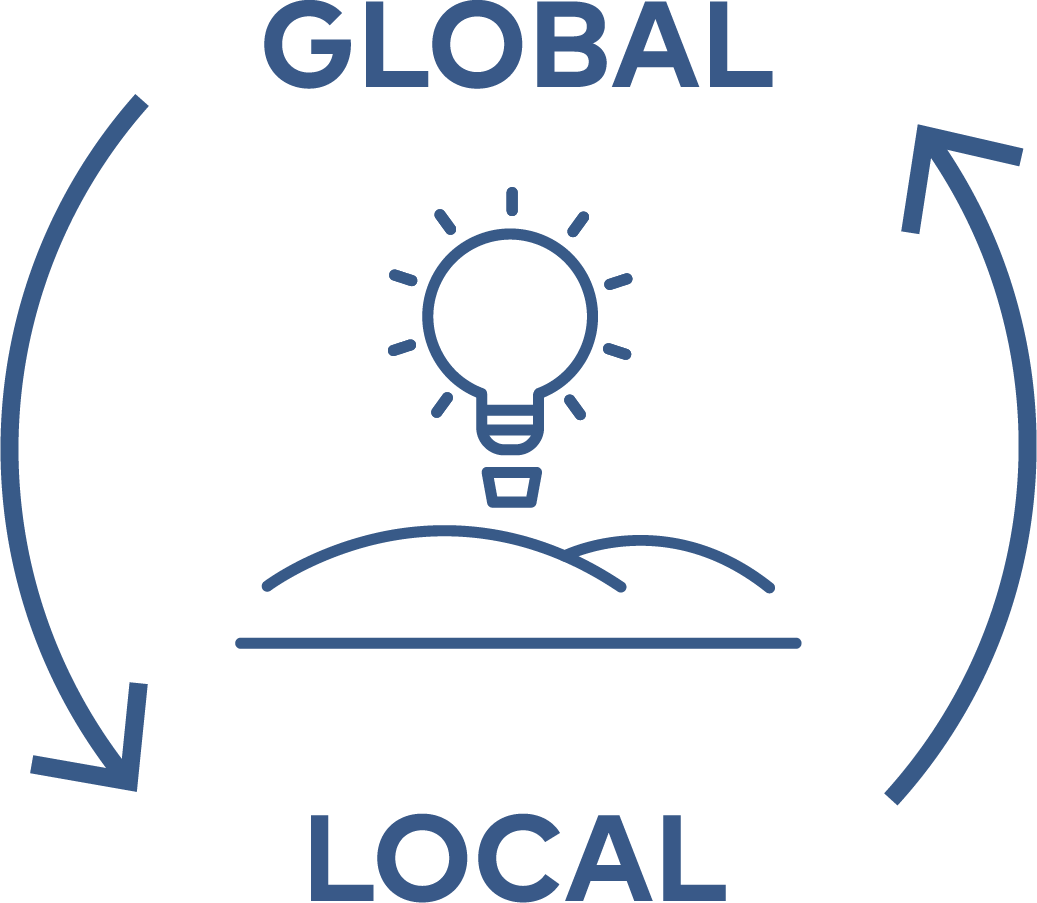
More than 60 Nordic stakeholders – business leaders, youths, researchers, policy-makers, public servants, entrepreneurs and representatives from relevant interest groups, participated in the dialogue from September to December 2023. They shared solutions, challenges, opportunities, suggestions for policy development, and best practices, on the topic “Accelerating a just Energy Transition”, focusing on Transport and on Energy Systems/Sectors.
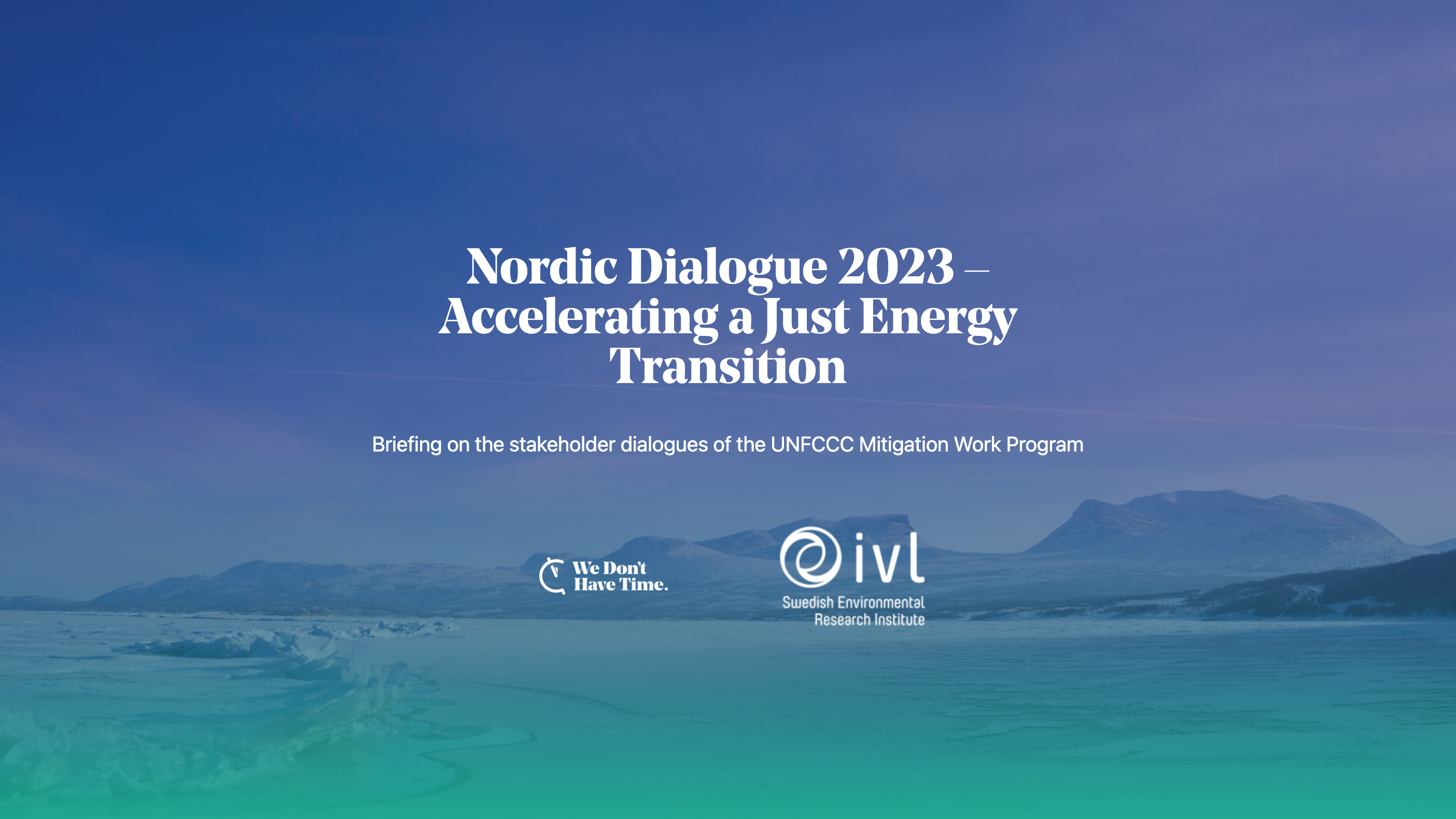
Human centered approach
The goal of mitigating the effects of climate change is indeed positive for everyone, but it is important to leave no one behind as we change ways to provide and utilize energy. This means trying to ensure a just impact – both positive and negative – across sectors, the labour markets, in society and the world at large.
The stakeholders witnessed that often there are technological solutions available or emerging, but a gap in considering the behaviour change needed and creating a human centered approach. Other recurring themes in the stakeholder dialogue were opportunities and challenges in working across sectors, capacity building, co-creation of policies, long term political incentive strategies and in sharing of good practices. Those actions were identified as some of the most important keys to enable and accelerate the just energy transition.
Detailed findings of the stakeholder dialogue, on topic of Transport Systems, were shared on the UNFCCC Submission Portal to inform and qualify the 2nd Global Dialogue on the MWP in October. Those findings, together with results from stakeholder dialogue on topic of Energy Systems, were compiled in an extensive report and presented and discussed in a live stakeholder event, Tuesday December 5, at We Don’t Have Time’s COP28-studios and online, which was viewed by more than 500,000 people worldwide.
Sharing learnings by communicating in different forums will be an important success factor as we globally accelerate the work towards reaching the goals of the Paris Agreement.
We are comparing new technologies and solutions to the structures and conditions of the past – instead we should look to new and holistic solutions for the energy transition.
Linda Strindevall, Environment & Climate Change Manager OX2
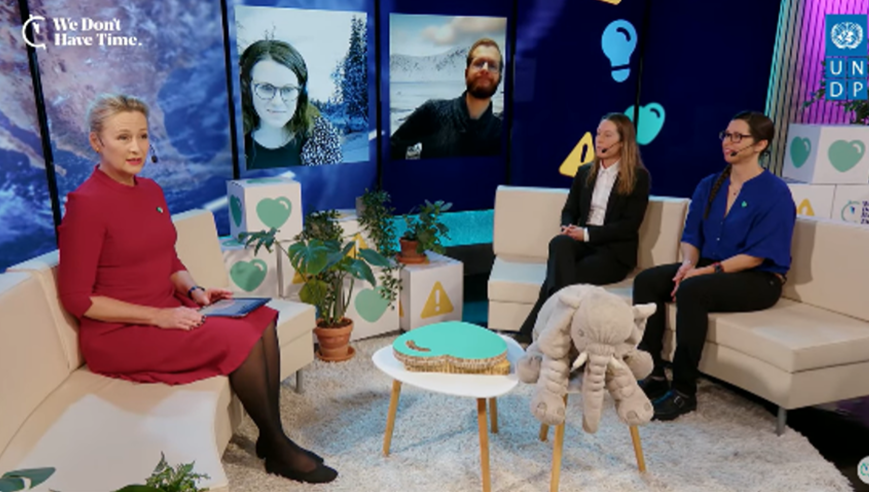
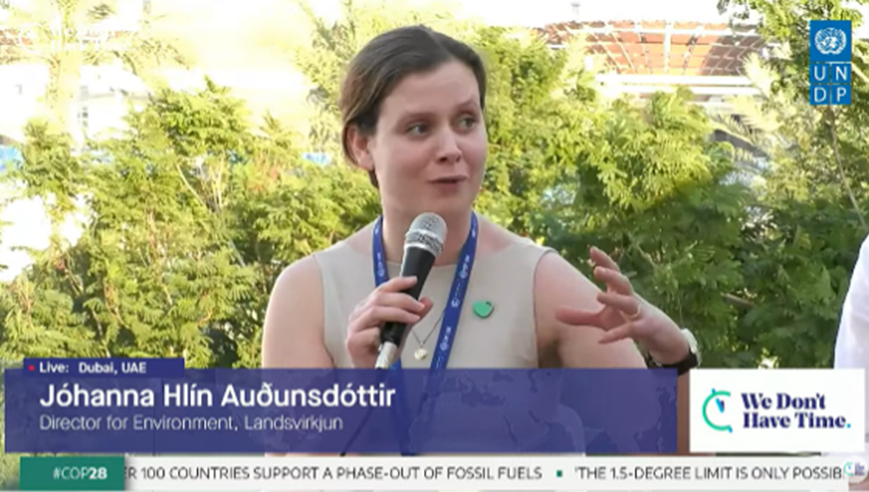
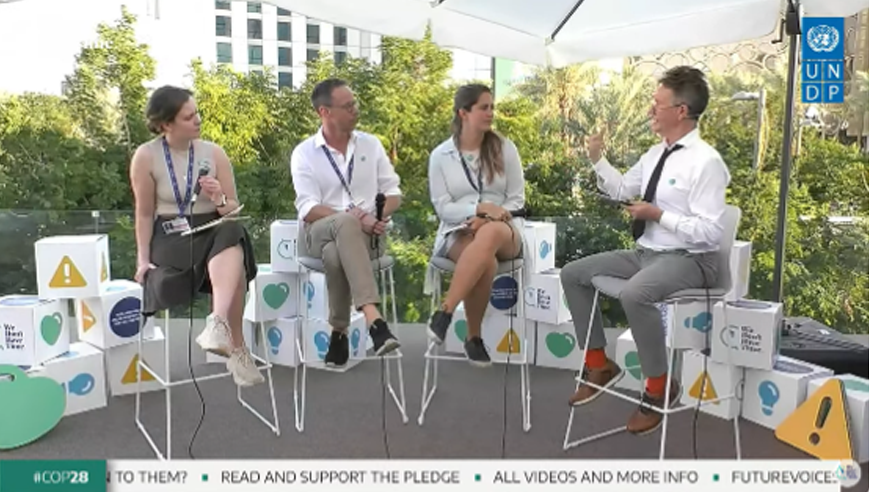
Image 1: The Stockholm Studio of We Don’t Have Time, day 5 of COP28, with (from left) moderator Catarina Rolfsdotter Jansson, Linda Gustavsson, Equality Strategist Umeå Municipality (Sweden), Mikkel Vindegg, Senior Researcher CICERO (Norway), Magdalena Streijffert, Senior Manager Public Affairs Neste Scandinavia (Finland) and Simone Andersson, Project Manager IVL Swedish Environmental Research Institute (Sweden).
Image 2: Jóhanna Hlín Auðunsdóttir, Director Environment Landsvikjun (Iceland), sharing insights on female representation in the Icelandic geothermal industry sector at the Dubai Studio of We Don’t Have Time, day 5 of COP28.
Image 3: The Dubai Studio of We Don’t Have Time, day 5 of COP28, with (from left) Jóhanna Hlín Auðunsdóttir, Director Environment Landsvikjun (Iceland), Markus Lutteman, Editor We Don’t Have Time (Sweden), Emelie Öhlander, Climate Action Programme Manager Ericsson (Sweden) and moderator Nick Nutall.